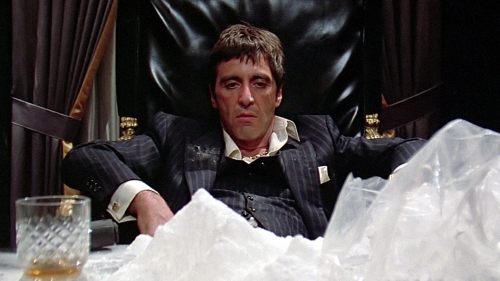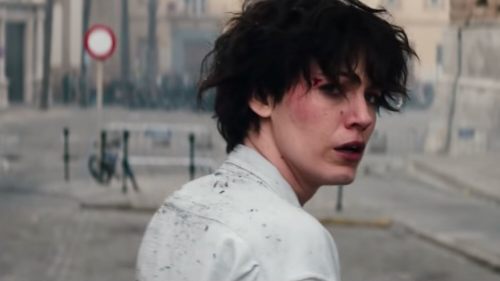INSIDE LLEWYN DAVIS And The Solitude Of Grief
If I had wings, like Noah's dove, I'd fly the river to the one I love. Fare thee well, my honey, fare thee well.
There's a moment in Inside Llewyn Davis when Llewyn (Oscar Isaac) begins singing "Fare Thee Well" at a dinner party and his host (Robin Bartlett) chimes in with the harmony that once belonged to his former partner, Mikey. For a few moments, Llewyn's music - always lovely, stirring - becomes something more, a soaring thing, too beautiful and fleeting to last. We're given a brief glimpse of what Llewyn was with Mikey, the heights they reached together that Llewyn is always chasing alone.
Of course Llewyn cuts the song short, raging, "Fuck Mikey's parts!" He knows he is nothing without his partner, and no one will let him forget it. Mikey jumped off the George Washington Bridge some time ago, and Llewyn is left to try and make something of what is left. His album isn't selling and he's forced to rely on the kindness and couches of his friends - a kindness he quickly squanders, as Llewyn is something of an asshole. He treats cats better than humans, and let me tell you, the man is a menace to cats.
But when Llewyn plays his guitar, and his earthy voice takes wing, we are faced with the sadness that dwells beneath the contempt he has for his fellow man and musicians. We can forget, just for a moment, that we don't particularly like this guy, "King Midas' idiot brother," as he's called by Jean (Carey Mulligan), the wife of his best friend (Justin Timberlake) that he's possibly impregnated. Llewyn knows a doctor that can take care of it - of course he does. Guys like Llewyn always know a doctor.
But as Llewyn travels from the Upper West Side to Greenwich Village to Chicago and back, hunched over in the snow with nothing better than a corduroy blazer to warm him, lugging his guitar case and occasionally a hapless cat, we are reminded, forcibly, of how alone he is. Llewyn is alone when he's exhausting the hospitality of Jean and Jim, he's alone in a car when he hitchhikes with Roland Turner (John Goodman) and Johnny Five (Garrett Hedlund); he's alone at the Gorfeins' endless dinner parties; he's alone when he sings onstage in a club full of people. He's been alone since the day Mikey leapt off that bridge and made Llewyn the ultimate solo act. As everyone tells Llewyn that they know what he's going through, that they miss Mikey too, none of them seems to understand that they cannot miss Mikey, they did not know Mikey, the way Llewyn did.
That's the thing about grief. No one can ever miss your friend the way that you do. No one knew your friend as you did. That relationship, those memories and the loss you feel when that is all that is left, just memories - that loss is yours alone, and no one can understand it, try as they might. Grief is so isolating; even when surrounded by a room of people who are grieving, too, each of us is alone - we all experienced a different version of those who are gone. We can't be comforted through well-meaning gestures and loving support. We're left to process with whatever tools we have within us, and that is all we can do.
So what does Llewyn do? He stumbles his way through life and his career with an impenetrable detachment, a blind man content to be blind. When he hitchhikes to Chicago to play for the kingmaker Bud Grossman (F. Murray Abraham), he sits on a stool in front of an empty stage and plays for him a dreamy, melancholy version of Joan Baez's "The Death of Queen Jane." Grossman waits in impassive silence, and then tells him, not without feeling, "I don't see a lot of money in this." Llewyn doesn't connect with an audience, Grossman tells him, and as a person who has sat in an audience trying to connect with Llewyn Davis for an hour and forty-five minutes, I have trouble arguing with him. He tells Llewyn he doesn't see him as a solo act - he needs a partner. When Llewyn tells him he once had a partner, Grossman replies, "You should get back together."
Llewyn stares with the stony expression he's worn the entire film, only his eyes betraying the tumult these words cause in his heart.
"That's good advice."



